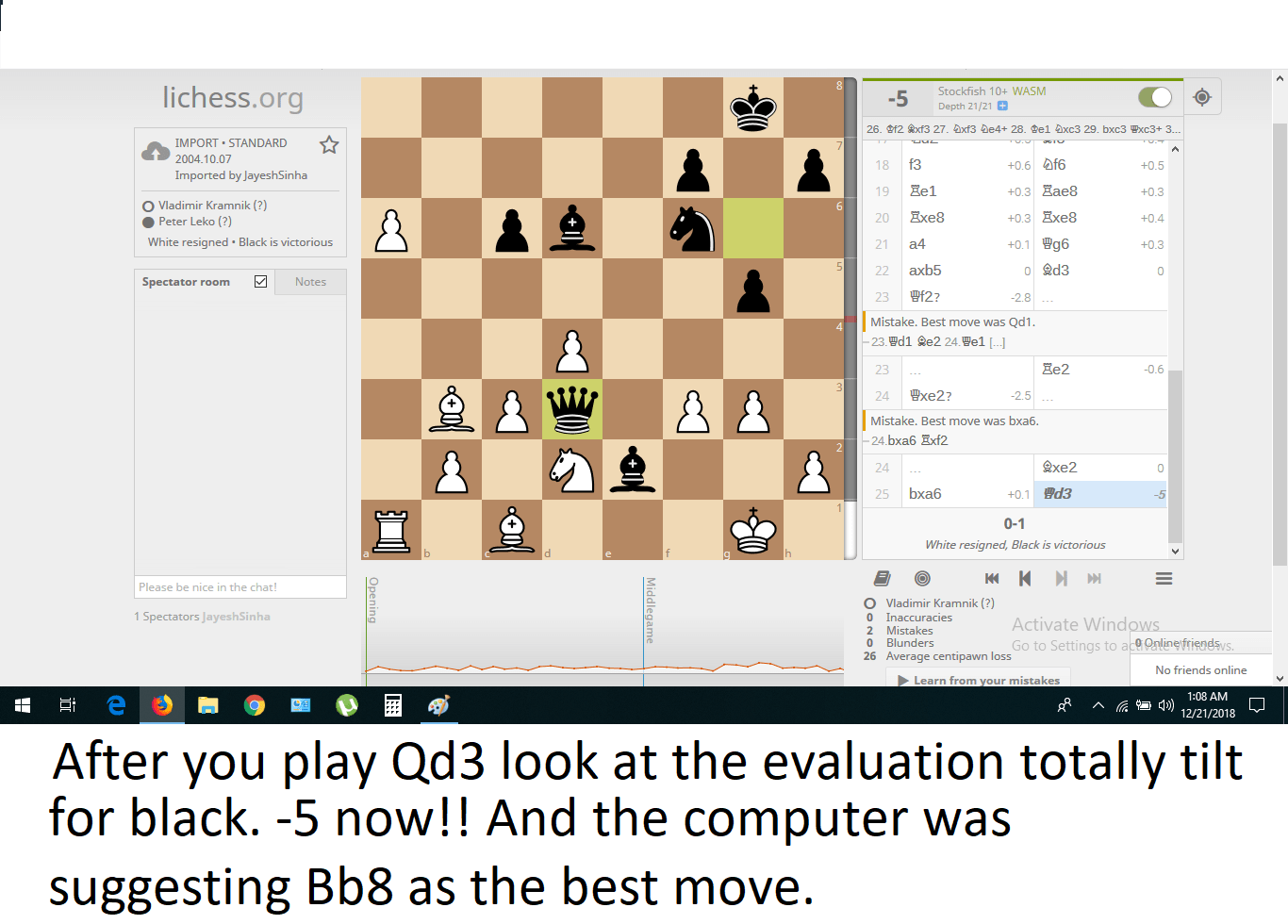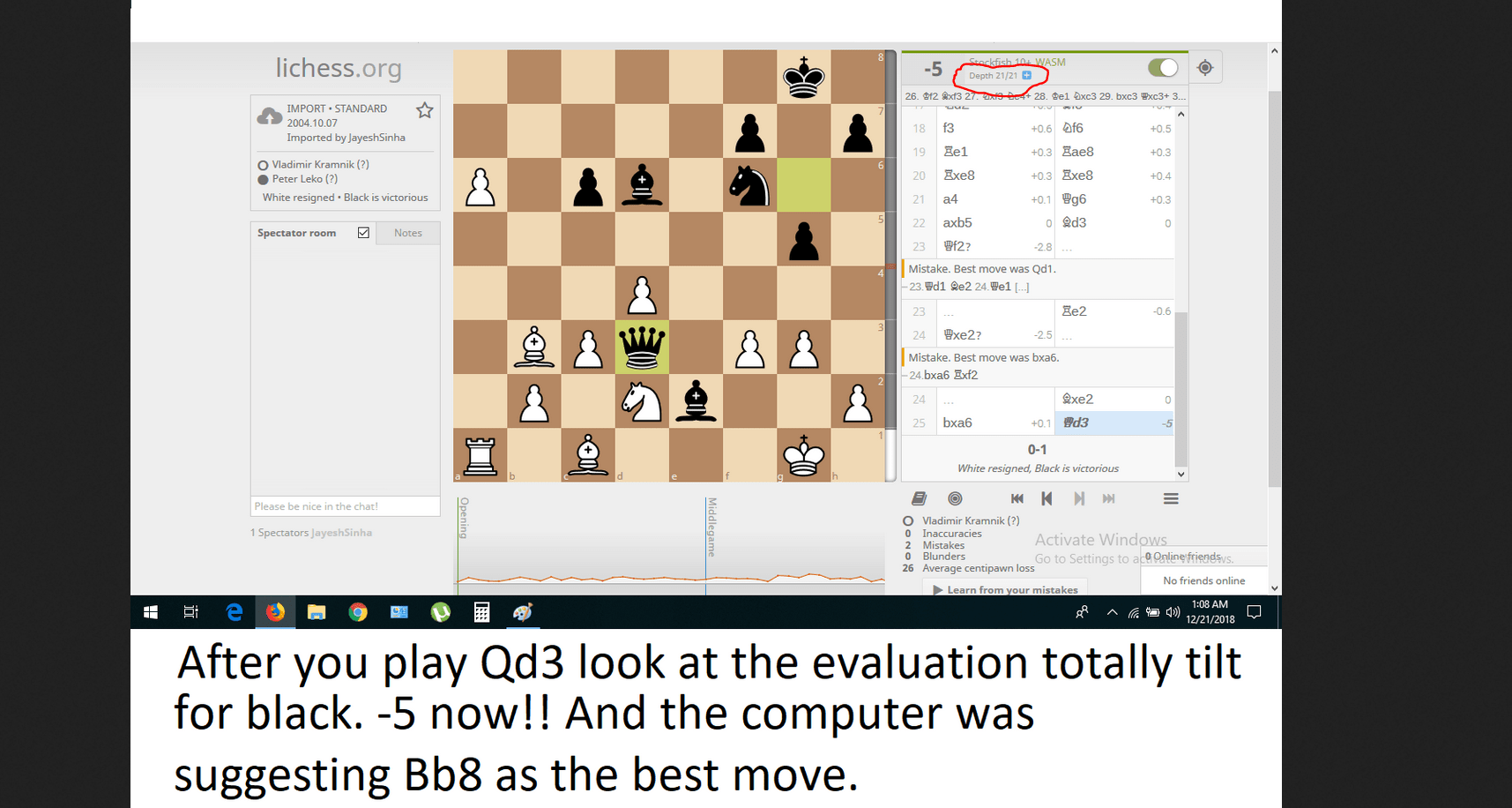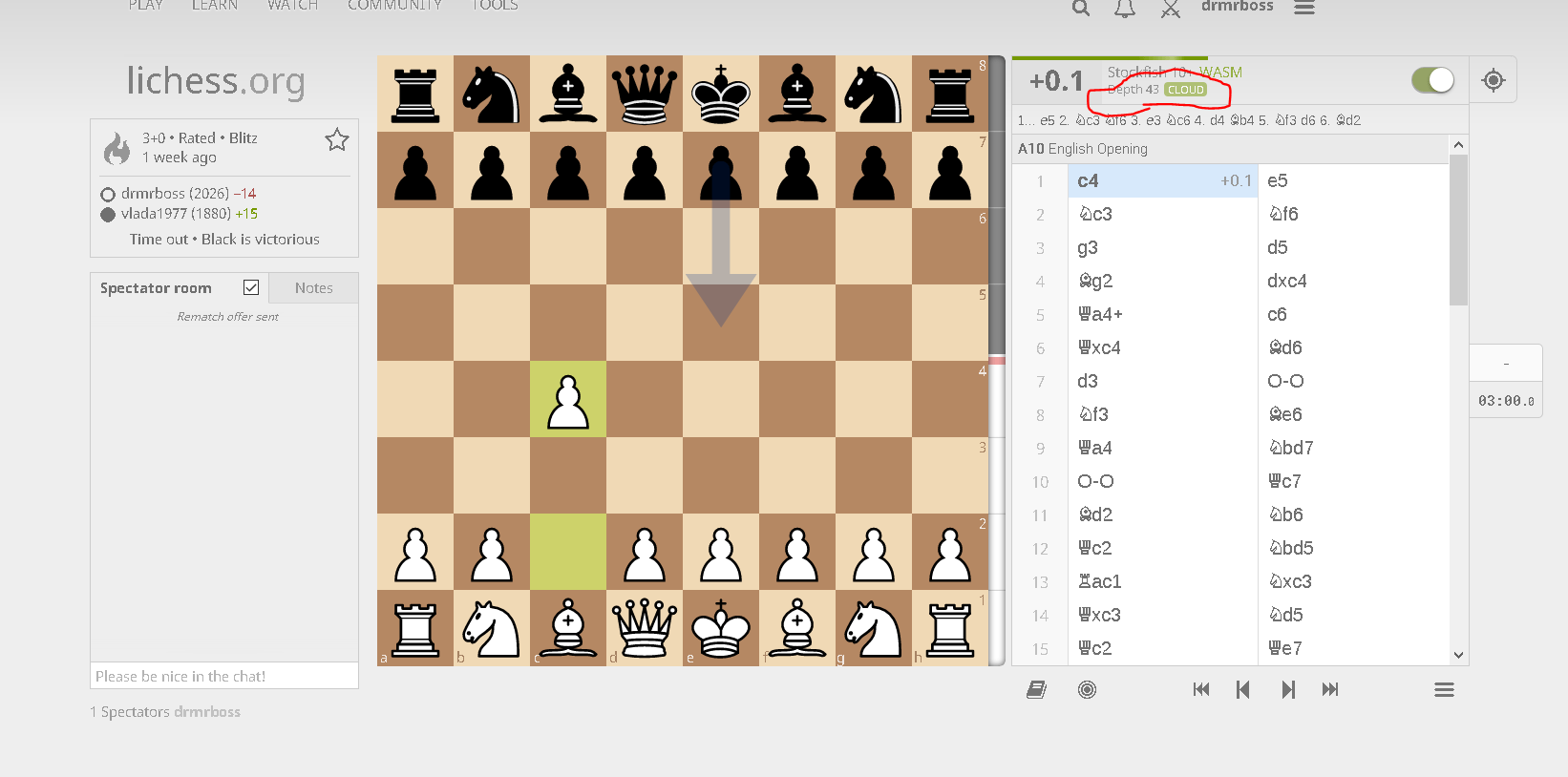When looking at the analysis of my games, I notice that the computer's evaluation of the position seems to only ever go down for a player after they have made a move.
This intuitively makes sense. I'm guessing it's not possible to "surprise" the computer with a very good move. Instead, your best possible move is already baked into their calculation.
Is this a general truth about the positional analysis engines, even at the higher/highest levels? Does Carlsen ever play a move which makes his calculated evaluation go UP?
No, they go up too. Every single game you have won must have seen the evaluation going up (at least from your side), unless you won on time .




When looking at the analysis of my games, I notice that the computer's evaluation of the position seems to only ever go down for a player after they have made a move.
This intuitively makes sense. I'm guessing it's not possible to "surprise" the computer with a very good move. Instead, your best possible move is already baked into their calculation.
Is this a general truth about the positional analysis engines, even at the higher/highest levels? Does Carlsen ever play a move which makes his calculated evaluation go UP?